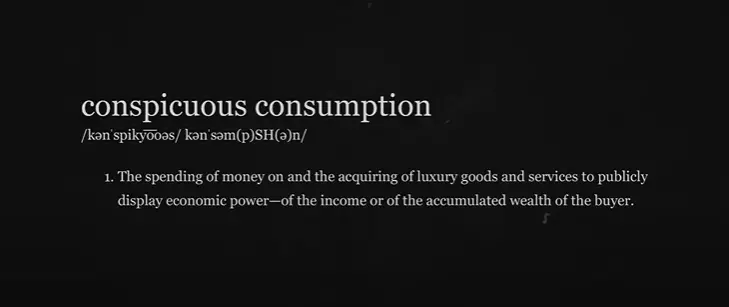The art of living simple, yet purposeful, is probably one of the greatest skills one could master.
Although it’s nothing new, it remains accurate to this day, and it will stay with us far beyond the foreseen future.
Since the dawn of civilization, philosophers, poets, and rationalists have been implementing the idea of practicing simplicity throughout life. While frugal simplicity was more of a necessity than a choice during much of our history, it was also considered a moral virtue.
Nowadays, however, we’re living in a consumer’s society. Most of the people’s top priority is to be financially stable, some even regardless of what they need to do to add a few more zeros to their bank accounts. But none of these people is to blame, as today’s world is constantly pushing all of us in one direction – to buy more stuff.
There is this bizarre common mindset that if you have more possessions, if you only wear designer clothes, or if you travel to luxurious destinations, you will radiate success. And as you radiate success, everyone will look up to you. Sadly, this damages the connection you have with the traditional values you have inherited by your ancestors.
Let’s face it, we have all been thinking this way at some point in our lives.
With the tremendous impact social media currently has on our existence, we have all fallen into this trap. It’s all about the massive house you own, the awesome car your dad bought for you, or the fancy job title you have. For most of our lives, we believe that it doesn’t truly matter whether you have a wonderful personality if you can’t afford to look wealthy in the eyes of others.
There is a term coined by the sociologist and economist Thorstein Veblen in his book ‘The Theory of the Leisure Class’, called ‘conspicuous consumption’.

This term stands for the act of spending money on luxury goods and services to publicly display your high income. Frankly, the phrase describes people’s behaviorism today, even though it was coined back in 1899.
Presently, while exposing your belongings to others to gain their respect is deemed normal, living simply suggests your lifestyle is quite boring.
But there still might be a light at the end of the tunnel.
Ever since blogging became a trend in the first decade of the 21st century, millennials rediscovered the benefits of simple living. Whether it reflects the nostalgia for the times when technology was only in sci-fi movies, or it was inspired by the belief that living in a simple manner makes you a better person, this particular lifestyle has gained tremendous popularity.
More and more people are imposing minimalism in their lives. This is not only about getting rid of belongings you don’t need, but also about focusing your attention on the things that bring more value to your life.
“That’s been one of my mantras – focus and simplicity. Simple can be harder than complex: You have to work hard to get your thinking clean to make it simple. But it’s worth it in the end because once you get there, you can move mountains.”
– Steve Jobs –
However, millions of people continue working long hours, only to spend their money on lottery tickets, black-Friday-sales, and goods they cannot afford.
The question that remains is ‘Why?’
Of course, as the philosophy professor at Alfred University in New York, Emrys Westacott states, hypocrisy is one of the obvious answers. We praise the simple lifestyle and consider it a sign of moral integrity. On the contrary, we get admirable degrees and work hard our whole lives, only to become financially stable, or in other words, to get rich.
Moreover, we applaud famous minimalists such as Steve Jobs and Albert Einstein for changing the world while leading simple lives. In the meantime, we admire celebrities who beam extravagance and have gained their fame for nothing but their looks.
Undoubtedly, there’s an intensified inconsistency in the way our minds work. However, today, most of us are blessed with the opportunity to choose their own lifestyle. In the past, simple living was not a choice but a demand. But now, we can actually decide whether we’re going to follow trends or we’re going to focus on the valuable things in life.
Currently, with the ongoing pandemic and the numerous lockdown restrictions around the globe, the art of leading a simple life has become a necessity.
As many of us are working from home, we don’t have a place to show off our brand new clothes. While we ought to wear protective face masks in public for our safety, we don’t spend hundreds on makeup, as no one would see it. And while the restaurants are closed, we more often cook at home and spend our days and nights with our families – the people we don’t really feel the need to impress.
Of course, there are many other examples of how the quarantine has changed our lives. But the point is, many of us have the time to truly understand the power of simple living. It was never about what you have, but what you deem valuable. In 2016, Westacott wrote:
“Millions of people suddenly find themselves in circumstances where frugality once again becomes a necessity, and the value of its associated virtues is rediscovered.”
Four years later, amid a worldwide pandemic, his words cannot be more accurate. And although many people might still not be convinced that living a simple life is a necessity, while we’re somehow forced towards simplicity, we can also acknowledge its significance.
If you don’t feel like letting go of your designer bags or fancy furniture, then don’t, as long as they add genuine value to your existence. Meanwhile, make sure you know what truly matters in life and focus on the things that elevate you, encourage your growth, and of course, bring you joy.



